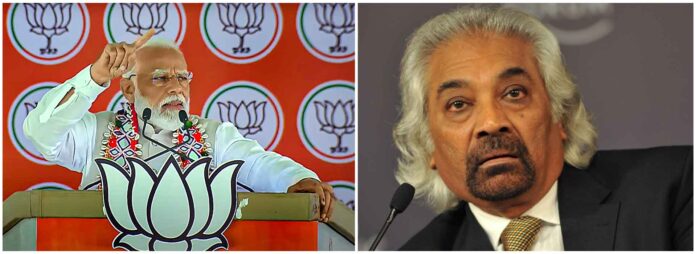Prime Minister Narendra Modi has strongly condemned discrimination based on skin color. The incident revolves around Pitroda’s remark suggesting that some people “look like Chinese,” which drew significant backlash for its racial undertones. Modi’s reaction not only underscores his administration’s stance on racism and discrimination but also reflects broader social and political implications.
Background of the Controversy
The controversy began when Sam Pitroda, a well-known figure and former advisor to the Indian National Congress, made a comment during a public appearance that implied a racial stereotype about the appearance of certain individuals, referring to them as looking “Chinese.” This remark was widely perceived as derogatory and insensitive, sparking a debate on racial sensitivity in India.
Prime Minister Modi seized this opportunity to address the issue head-on, articulating a clear and firm stance against any form of discrimination based on skin color. During a public speech, Modi emphasized that such attitudes are unacceptable and that every individual deserves respect regardless of their physical appearance.
Modi’s Response and Its Significance
In his speech, Modi stated, “We won’t tolerate insult on the basis of skin color,” directly addressing the comments made by Pitroda. His response was not just about condemning a single instance of racial insensitivity but was also aimed at reinforcing the values of equality and respect within Indian society. By doing so, Modi presented his government’s commitment to fighting discrimination and promoting a more inclusive society.
This stand is particularly significant in the context of India’sdiverse population, which encompasses a vast range of ethnicities, languages, and cultural backgrounds. Modi’s unequivocal rejection of racism serves as a reminder of the country’s constitutional commitments to equality and non-discrimination.
Broader Implications for Indian Society
Prime Minister Modi’s firm response to Pitroda’s remarks has broader implications for social cohesion and national identity in India. By publicly denouncing racism and promoting a narrative of inclusiveness, Modi is encouraging a shift towards a more empathetic and respectful public discourse. This is especially important in a country where social divisions can sometimes be pronounced.
Furthermore, Modi’s stance may influence public attitudes towards more sensitive and respectful behavior, which is crucial in a globalized world where cultural exchange and interaction are routine. Ensuring that public figures and leaders speak and act against discrimination can lead to a more harmonious social environment.
Modi’s Response and Its Significance
In his speech, Modi stated, “We won’t tolerate insult on the basis of skin color,” directly addressing the comments made by Pitroda. His response was not just about condemning a single instance of racial insensitivity but was also aimed at reinforcing the values of equality and respect within Indian society. By doing so, Modi presented his government’s commitment to fighting discrimination and promoting a more inclusive society.
This stand is particularly significant in the context of India’s diverse population, which encompasses a vast range of ethnicities, languages, and cultural backgrounds. Modi’s unequivocal rejection of racism serves as a reminder of the country’s constitutional commitments to equality and non-discrimination.
Broader Implications for Indian Society
Prime Minister Modi’s firm response to Pitroda’s remarks has broader implications for social cohesion and national identity in India. By publicly denouncing racism and promoting a narrative of inclusiveness, Modi is encouraging a shift towards a more empathetic and respectful public discourse. This is especially important in a country where social divisions can sometimes be pronounced.
Furthermore, Modi’s stance may influence public attitudes towards more sensitive and respectful behavior, which is crucial in a globalized world where cultural exchange and interaction are routine. Ensuring that public figures and leaders speak and act against discrimination can lead to a more harmonious social environment.
